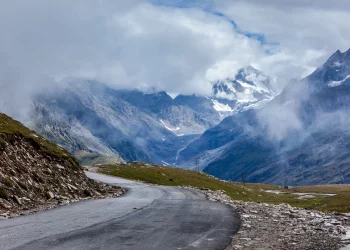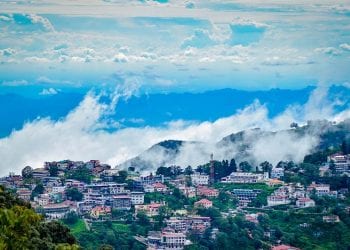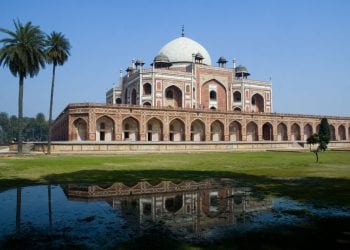Pinjore Garden: Complete Guide
Chandigarh is a beautiful city with manicured lawns and clean surroundings. It is one of the few well-planned cities in India. Chandigarh, the capital of the northern Indian states of Punjab and Haryana, was designed by the Swiss-French modernist architect, Le Corbusier. His buildings include the Capitol Complex with the High Court, Secretariat, and Legislative Assembly, as well as the giant Open Hand Monument. Pinjore Garden is one of the most breathtakingly scenic attractions of the tri-city, Chandigarh-Panchkula-Zirakpur. Pinjore Garden is an enchanting, Mughal-style garden, spread across seven levels. It lies dotted with palaces, lawns, a zoo, and even a Japanese garden. It is a hub for nature lovers, photography enthusiasts, and wanderers. Pinjore Garden is steeped in history and dates back to 17 CE. It was constructed by the architect Nawab Fidai Khan during the reign of Aurangzeb and refurbished during the era of Emperor Yadavindra Singh. The gardens are also known as the Yadavindra Gardens to honor the work and legacy of the ruler.
Pinjore Garden, also called Yadavindra Gardens, is one of the most sought-after tourist places in Chandigarh. Situated in the city of Pinjore, in the district of Panchkula, these 17th-century gardens amalgamate the best of history, architecture, and nature. The garden stretches over a massive area of 100 acres and is a beautiful place to unwind with nature amid the ever-growing concrete city. The Pinjore Garden is famous all over the world for its cleanliness, well-maintained greenery, and refreshing fountains. There is a central water channel that runs through the entire stretch broken up by dancing fountains at regular intervals. The gardens were originally laid out in the 17th century by the then Mughal governor of Punjab, Nawab Fidai Khan. Officially known as the Yadavindra Gardens, these are located in the neighboring district of Panchkula in Haryana. Pinjore Gardens is one of the best places to visit in Chandigarh.
History of the Pinjore Garden
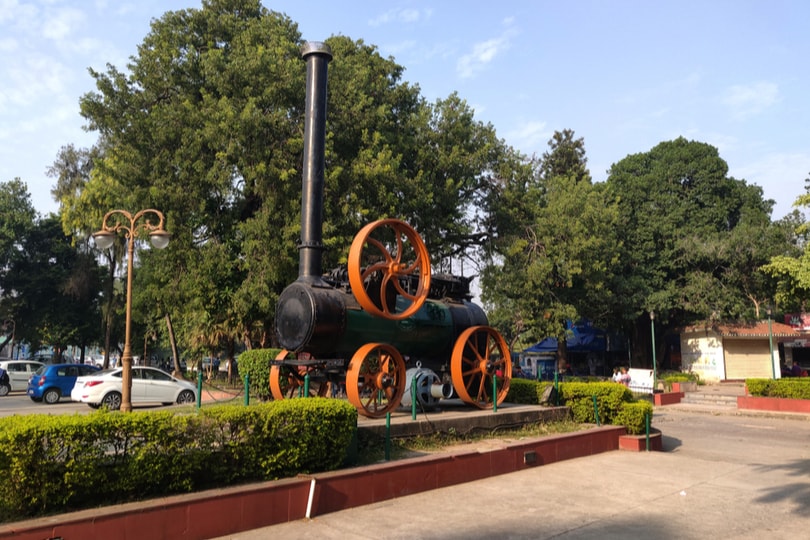
Mughal Emperor Aurangzeb and his foster brother, Nawab Fidai Khan, who was a renowned architect during the era of the Emperor worked together to design the garden. Nawab Fidai Khan was also serving as a Governor during that time, and his responsibilities took him to various places. On his visit to the valley of Pinjore, he was enchanted by its natural beauty and the marvels it had to offer. That’s when he decided to design the garden here in Pinjore.
It was constructed at the foothills of the Himalayas to serve as one of the Mughal summer retreats for King Aurangzeb, who then ruled from his capital city of Lahore. Nawab Fidai Khan had also supervised the construction of the Badshahi Mosque of Lahore, and his skills and mastery over architecture were unparalleled at that time. In 1775, the Maharaja of Patiala, Amar Singh bought it from the King of Sirmur, Jagat Prakash.
She said that according to a local tale, Nawab Fadai Khan Koka came to the valley of Pinjore to spend his first summer there. However, his enjoyment of the garden and its beauty was short-lived, for he was quickly frightened away by the Rajas. It is believed that the original inhabitants of the area, to scare their new guests, collected poor people suffering from goiter and presented them as the original residents. Now, in this area, like other areas nestled at the foothills of the Himalayas, there were occasional cases of goiter. But the Rajas here managed to make it look as if the entire valley was in the grip of this horrible disease. The gardeners all suffered from goiter; every coolie had this dreadful complaint; even the country women carrying up the big flat baskets of fruits and flowers to the zenana terraces were equally disfigured. Naturally, the ladies of the harem were terrified. They had not gotten accustomed to the area, and now they were faced with this new kind of terror. They were told that the air and water of Pinjore caused this menace of disease, and no one who lived there could escape it. This resulted in panic and the people there wanted to return. Fadai Khan had to relent and move the ladies of the harem elsewhere- a place that was safer and devoid of any diseases. The writer further goes on to say that had it been Aurangzeb instead of his foster brother, the cunning Rajas would have found their match, but Fadai Khan was easily deceived, and they had their way. One of the best places to visit in Chandigarh, Pinjore is a popular tourist attraction in India’s North.
This stratagem led to the Mughals being run out from Pinjore. Part of the walled outer enclosure of the abandoned garden was demolished in 1793 to build a road. In the 19th century, when the garden was covered with wild outgrowth, it came under the territory ruled by the Maharaja of Patiala. India was under the British Raj then. The Maharaja Yadavindra Singh (1914-74) of the princely state of Patiala restored the garden to its former splendor. The gardens have been renamed Yadavindra Garden as a tribute to the Maharaja and his devotion to the place. This garden has been used as a setting for shooting a few Bollywood movies.
Structure of the Pinjore Garden

Pinjore Garden is built in line with the Charbagh Pattern, which is a distinctive feature of Mughal architecture. The area has been designed to incorporate terrace gardens, grand pavilions, and captivating fountains. The garden is known for its seven terraces that make the garden more appealing and add a touch of magic to it. No pries for guessing: Pinjore Gardens is one of the best places to visit in Chandigarh.
The garden features an impressive range of flora including aromatic flowering plants, Mango orchards, shrubs, and other trees. The pathways here are lined with tall trees that provide cool shade to the visitors walking around. It also houses an open-air theatre. It is decorated by a central water channel interspersed with sprinkling fountains that flows in the middle of every level. There are numerous pools of water, impressive arched balconies, and lush green manicured laws carpeted with beautiful and fragrant flower beds.
Pinjore Gardens are an impressive example of the terrace gardens in India. During the festival of Baisakhi, which falls between April and June, the garden comes alive with the annual Mango Festival. As the name suggests, this festival exhibits the best mangoes from every state in India. It also serves as the host to various competitions, cultural performances, a vibrant bazaar, and a wide range of programs during that time. The garden is not just blessed with a vast expanse of flora but also houses within itself a Japanese-style garden, a splendid nursery, and spectacular picnic spots. One of the best places to visit in Chandigarh, Pinjore is a treat for those who wish to explore India’s north.
The Architecture of the Pinjore Garden
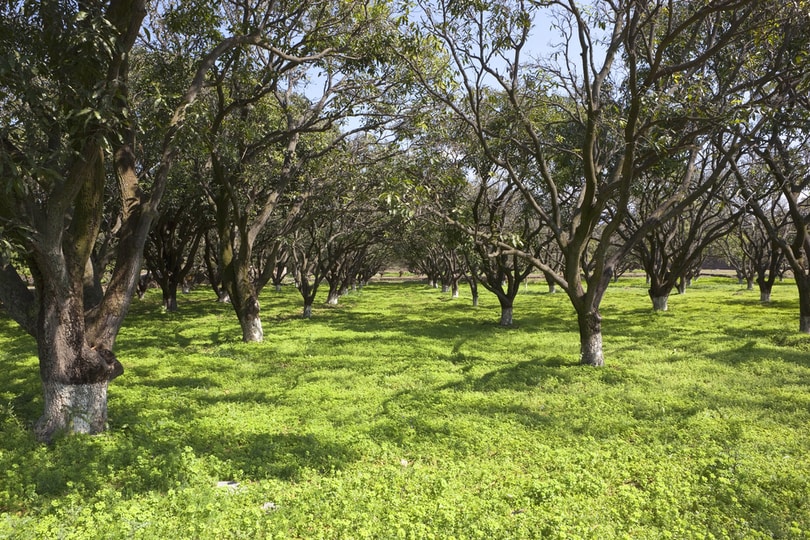
Each of the seven terraces house several architectural wonders. The first terrace, the highest of all, has a palace built in the Mughal-Rajasthani style of architecture. The palace is called the Shish Mahal and has been built using mirrors. There is also a Hawa Mahal on this level. The second level has arched doorways along with a painted palace called the Rang Mahal. The third level lies decorated with scented flower beds, beautiful cypress trees, and enchanting orchards. The fourth level is known for housing the palace of waters or Jal Mahal. The Jal Mahal has a fountain bed. The next two levels lie dotted with lush green trees and sparkling fountains. The seventh level has an open-air theatre.
Fairs and Festivals: Celebrations at the Pinjore Garden
Pinjore Heritage Festival
The Pinjore Heritage Festival is celebrated every year in December as a tribute to the rich legacy of this garden. During the festival, the garden is decorated and illuminated with lights. It is truly a sight to behold. The visitors are also entertained with a plethora of evening performances including dance, music, and drama. Various competitions are held during the festival like drawing, rangoli, folk dance, and Mehendi competition. The venue features a Food Bazaar where you can sample some of the choicest dishes from all across the country and a craft bazaar selling beautiful hand-crafted items that can be purchased as souvenirs for friends and family.
Baisakhi Festival
The traditional Punjabi festival of Baisakhi is celebrated in April every year. It is one of the grandest festivals celebrated in Pinjore and is marked with vibrant day-time performances, an expansive food bazaar, craft bazaar, vigorous Punjabi music, and hearty competitions.
Mango Festival
As the name suggests, this festival is an ode to the king of fruits- Mango! It is an annual festival celebrated in July. The most important aspect of this festival is the Mango Exhibition where one can find a variety of Mangoes from all over India.
Things to do at Pinjore Garden

Pinjore Garden is a huge garden featuring seven terraces. There is no dearth of things to do here. Whether you are here with your friends or family and kids, you will find that this garden has something that can be enjoyed by everyone. Some of the most exciting places here are-
Mini Zoo
A mini zoo housing various species of birds and animals lies within the garden area. There are no extra charges to enter the zoo, and it can be enjoyed and explored by kids and adults alike.
Nursery
The nursery at the garden has a plethora of flowering plants. You can also purchase potted plants for your garden from here.
Japanese Garden
This is one of the major attractions in the Pinjore Garden. An area inside the garden has been developed into the beautiful and serene Japanese Garden that lies embellished with a pleasant water body, a bridge, a structure featuring a tiered tower, and statues of Japanese mythical creatures. It represents a scenic garden in a city in Japan.
Best Time to Visit Pinjore Garden

The Pinjore Garden remains open throughout the year. However, if you want to enjoy the festivals here, you should visit the Garden between November and August. In December, it hosts the Pinjore heritage festival. In April, the vibrant festival of Baisakhi attracts people from all over the country to Pinjore, and July marks the festival of mouth-watering mangoes. You can choose to visit during any of these months depending on your preference. All in all, One of the best places to visit in Chandigarh, Pinjore is a popular attraction for visitors of all ages.
How to Reach the Pinjore Garden
The garden is only 22 km from Chandigarh, and you can easily get a bus or hire a taxi to get there.
If you want to experience the best of history, architecture, and nature, then Pinjore Garden is the perfect place to visit. Spend a few hours in this colorful garden and find yourself transported to the time of royal Rajas, palaces, and courtesans.
Recent Posts
Top Picks

- OYO
 15 April, 2024
15 April, 2024 - Cultural Tour

- OYO
 15 April, 2024
15 April, 2024 - Cultural Tour

- OYO
 15 April, 2024
15 April, 2024 - Cultural Tour

- OYO
 15 April, 2024
15 April, 2024 - Cultural Tour

- OYO
 15 April, 2024
15 April, 2024 - Cultural Tour

Please rotate your device
Please go back to portrait mode for the best experience



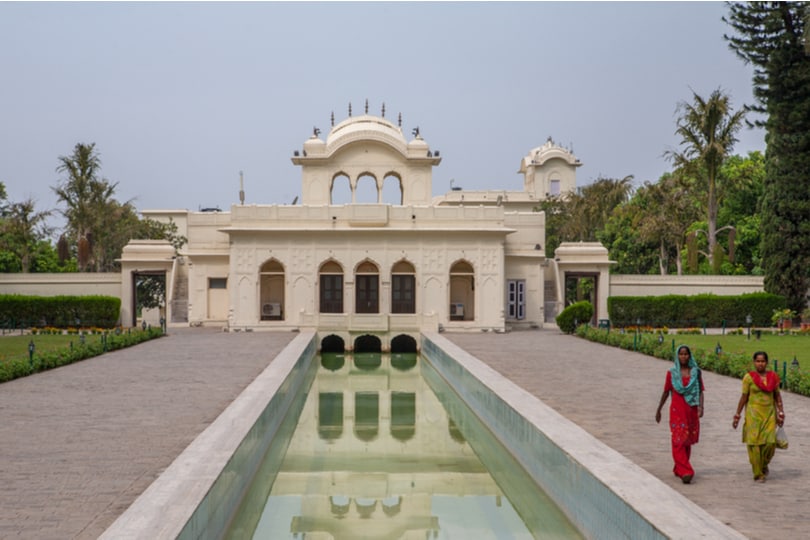

 April 15, 2024
April 15, 2024 